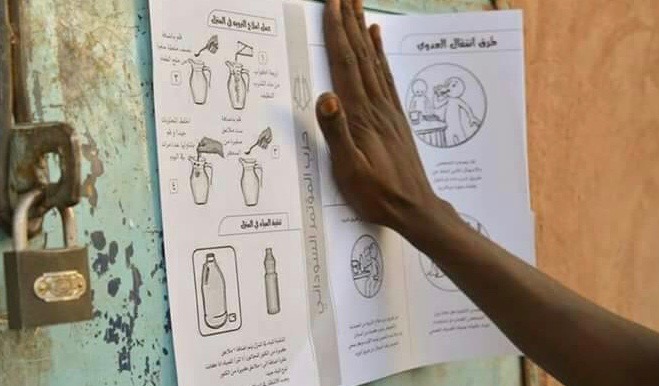SUDAN INSIDER |
This news summary is part of our Sudan Insider, a monthly newsletter providing
news and analysis on Sudan’s biggest stories.
Subscribe here to receive the Sudan Insider in your inbox.
……………………………..
Cholera across Sudan rising
What happened…
According to Sudan’s health ministry, roughly 265 deaths and 16,000 cases of “acute watery diarrhoea” have been recorded in 11 states across Sudan. The independent Central Committee of Sudanese Doctors, however, have cited 22,000 cases and 700 fatalities since late May 2017. This figure is comparable to that of the National Epidemiological Corporation that cites 23,766 infections and 820 deaths since May.
The first cases were identified in Blue Nile State in August last year. According to UN estimates, White Nile State remains the most affected area with a large number of cases cited in South Sudanese refugee camps where cramped conditions and inadequate water supplies have increased contagiousness.
The Doctor’s Committee expects to see more cholera cases with the start of the rainy season, especially within displaced camps. In late June to early July, the medical organisation reported over 200 new cholera cases in North Darfur State with 100 more cases reported later in the month at the state’s Kabkabiya Hospital alone.
The government continues to downplay the epidemic, referring to cases as “acute watery diarrhoea” and have targeted those who refer to the outbreak as cholera. Authorities detained journalist Ammar El-Daw in April for reporting the outbreak in Gedaref State. In June, Authorities even dismissed Omdurman Emergency Hospital Director Dr Hussein Aka for refusing to remain silent about the epidemic.
The head of the UN’s World Health Organisation, Dr Tedros Adhanon Ghebreyesus, has also faced criticism for not officially recognising the epidemic as cholera –seemingly a habit of Dr Ghebreyesus, having denied in the past three suspected outbreaks in his home country Ethiopia.
What it means…
The government and international actors’ continual denial of the cholera outbreak have muddled any attempts for an accurate assessment of the situation and subsequent responses to the disease. Government support efforts have been limited. The international response has primarily focused on treating refugee cases in White Nile State, according to the Assessment Capacities Project (ACAPS) a data-led organisation that assists humanitarian interventions.
Sudanese doctors and activists have criticised the limited response from Khartoum and international actors and call on nationwide measures to curb further infection. The limited international response is partly due to the continual decrease in the number of organisations and aid workers operating in Sudan. Government authorities expelled 13 international humanitarian organisations in 2009.
The Central Committee of Sudanese Doctors say the poor health facilities and unsanitary water supplies have ensured the epidemic has spread quickly across the state. Poor health facilities have led to the use of schools to operate as isolation centres for cholera patients, a practice doctors say inadequately quarantines the disease and contributes to cholera spreading further.
It is not surprising that the states that UN claim has poor access to clean drinking water are the most affected, namely: White Nile, Red Sea and Gedarif states. Roughly 31% of Sudan’s drinking water comes from sources contaminated with industrial, domestic and commercial waste, the UN reports.
Interestingly, the rebel controlled areas of the Nuba Mountains appear to be less affected than the rest of the country, according to local health workers operating in the area. Local medical workers have estimated 160 cases of confirmed infection but all cases are taking place in the government-controlled areas. According to Dr. Tom Catena at Gidel Hospital in Heiban County, one reason cholera has not spread in the SPLM-N areas is the relatively clean drinking water from boreholes. Further, the relative isolation of the SPLM-N controlled area from the rest of Sudan has curbed infection rates.
But SPLM-N Secretary of Health Tutu Turkash believes the areas are likely to see cases in the future and they lack medical supplies to contend with the crisis. The high malnutrition rates in the Nuba Mountains will increase vulnerability to infection, he said. According to the South Kordofan-Blue Nile Coordination Unit, an organization that monitors food insecurity in the two areas, roughly 75% of households surveyed in the central region of the Nuba Mountains reported no food in their homes.





